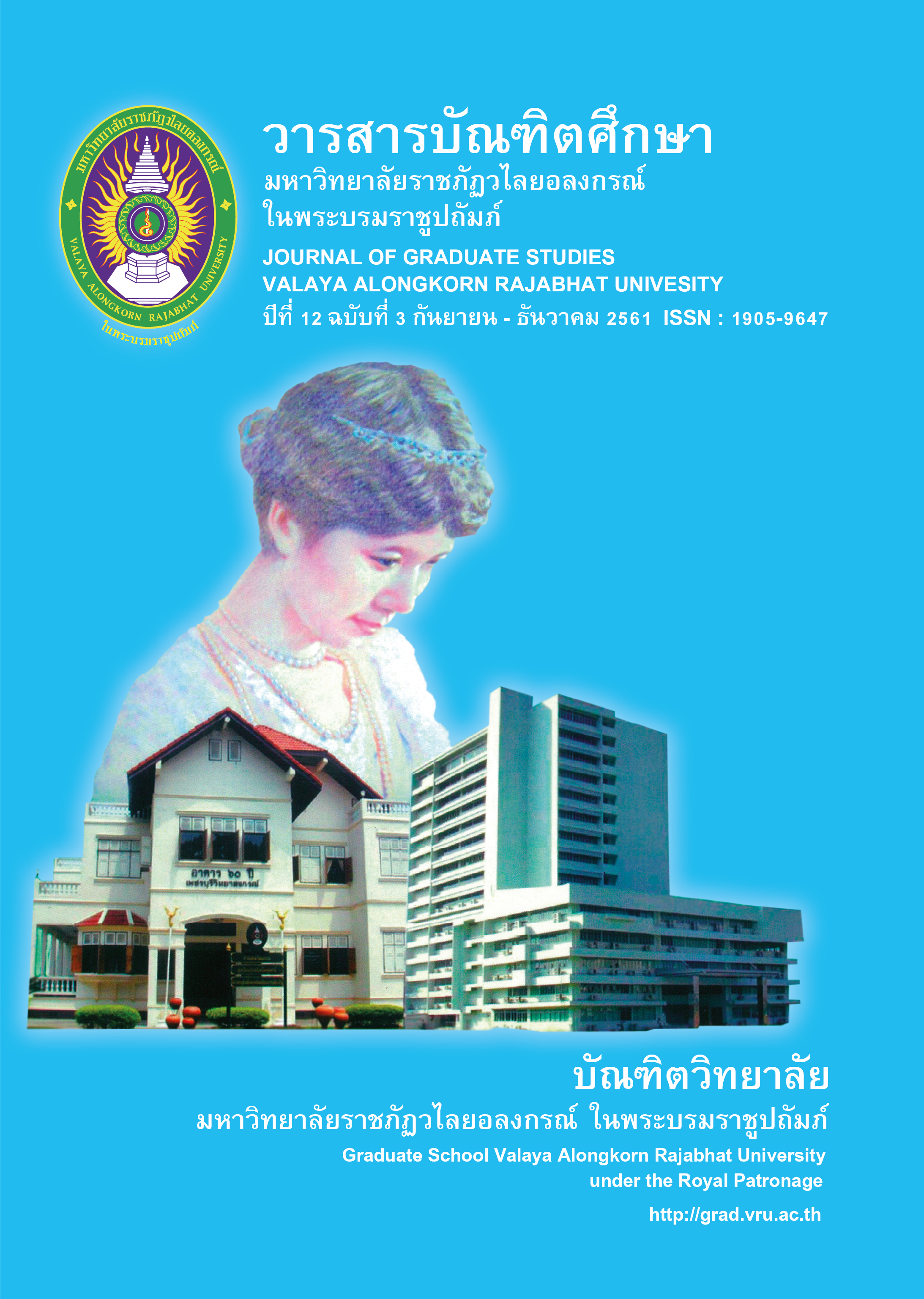THE TEACHER DEVELOPMENT PROCESS USING THE COACHING SYSTEM FOR PROMOTE THE 21st CENTURY SKILLS OF STUDENTS IN CHANTHABURI PROVINCE
Main Article Content
Abstract
The main purpose of this research was to develop the teacher development process using the coaching system for promote the 21st century skills of students in Chanthaburi. The purpose was be divided in 3 items; 1) to study the contexts of the co-operation between schools the educational service area offices and university, 2) to develop the learning of teachers in terms of the knowledge, attitude and skills that resulted by the Teacher Development Process using the coaching system, and 3) to develop the 21st century skills of the students. The research participants were from the Chanthaburi primary educational service area office 1, the Secondary educational service area office 17, the 11 primary schools, the 4 secondary schools and Faculty of education Rambhai Barni Rajabhat University. This study was a research and development using the action research that consisted of two cycles. The operations of each cycle consisted 4 steps; (1) studying the basic contexts in the 1st cycle and improve the operations in the 2nd cycle, (2) operation the teacher development process, (3) evaluation the teacher development process, and (4) learning reflection.
The findings were as follows:
Part 1: The teacher development process using the coaching system was based on believes, principles and methods of coaching. There contains the personal of the 2 main organizations; the researcher from the university and the personals from the educational service office in Chanthaburi. The management was set in the 6 coaching teams; 4 teams for the primary school and 2 teams for the secondary school. Each teams was operated in 3 steps; 1) pre-coaching 2) coaching and 3) post-coaching. The coaching methods was difference by the schools contexts, the subjects and the teachers. The values from the process were occurred in teachers and students.
Part 2: Include: 1) the results of the primary contexts of the co-operation between schools the educational service area and the local university through coordination and interaction in 3 phases: the former operation in the area of building relationships between schools and education district through meeting, training, in order to optimize teachers’ capacity in better cooperation. During research process, all personals were able to exchange ideas, sign up for cooperating in developing teachers’ capacity together. By the end of the research, there were better relationship and positive cooperation among all the participants, 2) the results of the analysis of knowledge, attitude ,and skills in teachers’ learning management in 3 areas: knowledge and understanding related to 21st century skills, knowledge and understanding related to the learning design in positive attitude of learning activities and coaching, including learning activities and self-development skills, and 3) the results of the development of students’ 21st century skills in 3 areas: learning skills and innovation, information technology, medias and technology skills, and life skills and occupation.
Article Details

This work is licensed under a Creative Commons Attribution-NonCommercial-NoDerivatives 4.0 International License.
บทความทุกเรื่องได้รับการตรวจความถูกต้องทางวิชาการโดยผู้ทรงคุณวุฒิ ทรรศนะและข้อคิดเห็นในบทความ Journal of Global of Perspectives in Humanities and Social Sciences (J-GPHSS) มิใช่เป็นทรรศนะและความคิดของผู้จัดทำจึงมิใช่ความรับผิดชอบของบัณฑิตวิทยาลัย มหาวิทยาลัยราชภัฏวไลยอลงกรณ์ ในพระบรมราชูปถัมภ์ กองบรรณาธิการไม่สงวนสิทธิ์การคัดลอก แต่ให้อ้างอิงแหล่งที่มา
References
วิจารณ์ พานิช. (2555). วิถีสร้างการเรียนรู้เพื่อศิษย์ในศตวรรษที่ ๒๑. กรุงเทพฯ : มูลนิธิสดศรี – สฤษดิ์วงศ์.
Blanchard, P. N. and Thacker, J. W. (2004). Effective training: System, strategies and practices. Upper Saddle River: Pearson Prentice Hall.
Mink, O. G., Owen, K. Q. and Mink, B. P. (1993). Developing high-performance people: The art of coaching. Reading, Massachusetts: Addison – Wesley.


